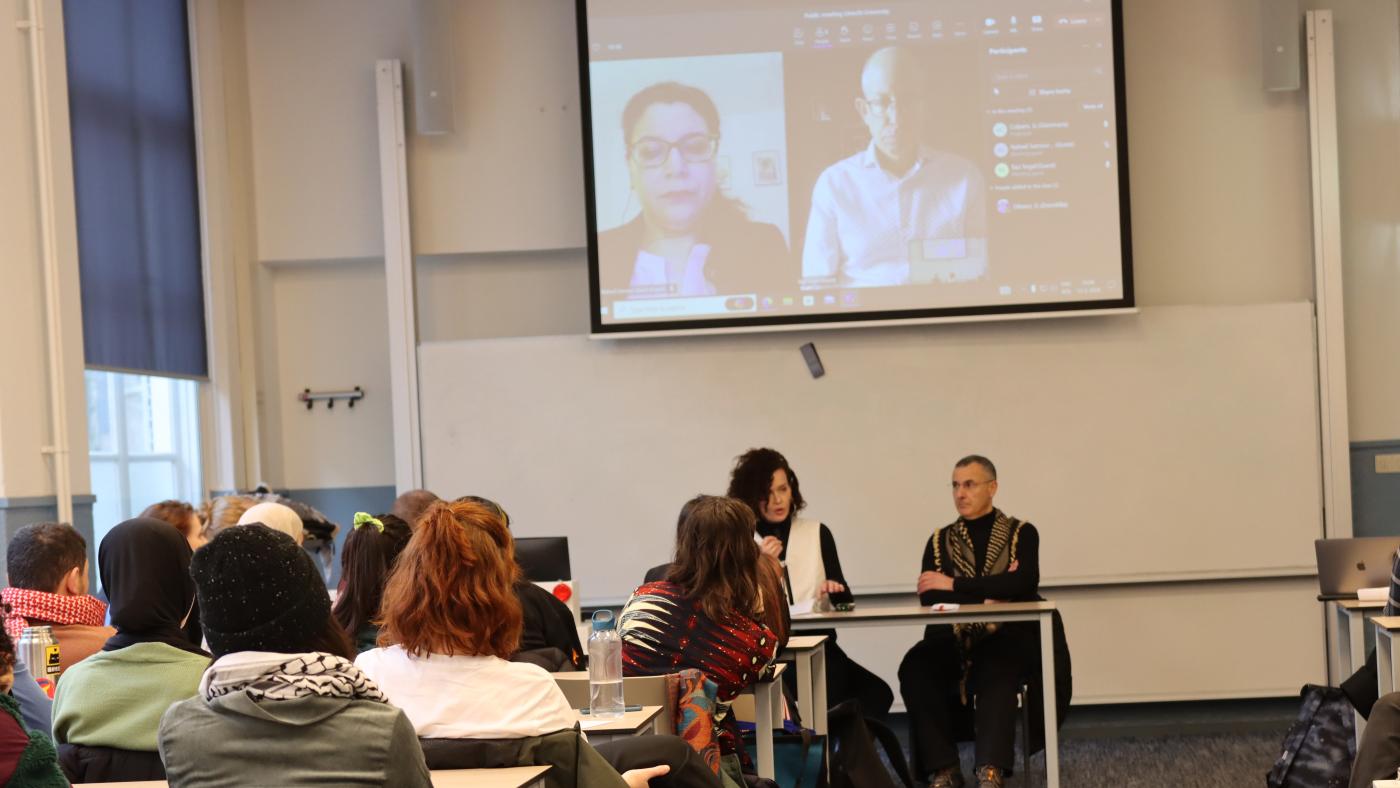University’s neutral stance hard to swallow for some
'UU risks being complicit in genocide committed by Israel'

The lecture hall at Janskerkhof was packed Monday afternoon, with dozens of interested people also joining in from another room, bringing the total number of attendees to over one hundred. Most of them were students, but some staff members participated as well in the discussion on the role of Utrecht University in the Gaza conflict. It could hardly be called a debate, as everyone present believed that Israel is guilty of genocide and that UU should speak out against it.
At the end of the session, which lasted for more than three hours, the students brainstormed about further protests. Should they drag the university to court? Occupy a building? Refuse to pay tuition fees? Approach the University Council?
Both students and staff have started petitions already, which have been signed by over 1,000 people so far. A delegation comprised of students and staff also met with the Executive Board but the university maintains that it will remain neutral, justifying its choice by saying that it aims to be a safe place for everyone, regardless of origin, and respect everyone's opinions.
Israeli universities
The people who attended the meeting did not appreciate this point of view. During the first part of the event, three scholars reflected on the position universities are taking regarding this conflict. Dr. Nahed Samour, affiliated with Radboud University's Faculty of Law, argued that the university is a state body and therefore is bound by rulings of the Genocide Convention, which postulate that a state – or part of a state – must distance itself from genocide. Samour believes this is an issue, partly in response to the recent ruling by the International Court of Justice in The Hague, which spoke of "possible genocide". This opinion was endorsed by Dr. Raz Segal, Associate Professor of Holocaust and Genocide Studies at Stockton University.
The most outspoken scholar was Omar Barghouti, a Palestinian PhD student from the University of Amsterdam who argued that all Israeli universities contribute to the fight against Palestinians. Therefore, cooperating with these universities – as UU does – implies complicity. He also denounced the university's statement that it aims to be a safe place for everyone. "That’s no reason to avoid a discussion and support genocide. Everyone should feel safe, but a discussion about genocide is also allowed to be uncomfortable. Discomfort is part and parcel of the academic debate."
Personal letter
During the second part of the meeting, students and staff members shared their views about UU's position on the matter. Geert Buelens, Professor of Dutch Literature, and Kees Koonings, Professor of Cultural Anthropology, both oppose Israeli aggression and support the activists. Seven students wrote a joint letter to the Executive Board, of whom two said they did it because they did not feel safe in an environment where genocide is not refuted. They don’t understand why the university chose to take sides regarding the war in Ukraine but refuses to do the same now.
One student added that UU's support for Palestinian students leaves much to be desired: "One student went to the student advisor because of the situation going on at home. The advisor said they felt bad for the student but that no exception could be made, so lectures had to be attended as usual."
A response from the university administration was received during the meeting. The Executive Board will join the association of Dutch universities, UNL, in contemplating whether to reconsider its view on the conflict in Gaza. The reevaluation was prompted by a ruling by the International Court of Justice in The Hague, which spoke of "possible genocide" in the case brought by South Africa. For now, UU's position will not be amended, but there is room for change. Those present were left to cling to that hope.